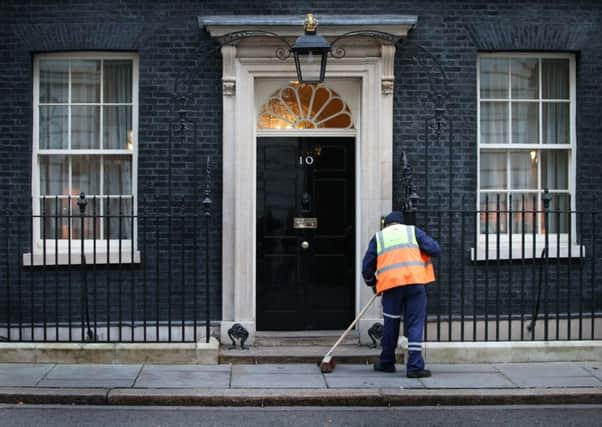Leader: No easy choices after this campaign


No wonder then that a lot of attention has focused on the minor parties. But that has not really gone as planned.
This was going to be Ukip’s election, according to all the talk last year. They were going to be the third political force in Britain, kingmaker as they took seats from the Tories and Labour. That has not happened. Ukip will take votes from all sides, but their threat has dissipated. Cameron may think his tactic of a referendum promise on Europe has done him a turn, stopping defectors to Ukip and keeping the old wounds in his own party under wraps, but it might yet prove too high a price to pay. The Greens too look likely to let early promise go unfulfilled, heading as they are for only one seat.
Advertisement
Hide AdAdvertisement
Hide AdIt was foreseen at the outset that Scotland would play a major part in this election, but few saw it becoming the defining topic. According to the polls – and it seems hard to think they can all be hugely wrong – the SNP will see a meteoric rise in the number of MPs they send to Westminster. Cautious estimates give them 40, and there is talk of all of Scotland’s 59 seats being taken by the Nationalists. In any event it promises to be a rout for Labour in Scotland –unthinkable even five years ago.
The UK implications of that huge phalanx of SNP MPs was slow to dawn on the two main parties. The Tories saw it first, with Cameron realising that warning English voters of a Labour government kept in power by the SNP was a powerful message, as he sought to keep voters away from Ukip and to increase his turnout.
But Miliband woke up late to the damage a potential pact with the SNP could do him in the English consituencies. So he first ruled out a formal pact with the SNP, but then had to go further and say no deals with the SNP after the election. He even said he would rather forego the position of prime minister than do a deal with the SNP.
Let us not underplay the amazing performance of Nicola Sturgeon in this election campaign. The SNP leader has performed on the UK stage better than anyone else. She has come across as a fresh, assured, reasonable but passionate politician, committed to the issues of social justice. Perhaps her performance side-swiped her opponents, as she got off lightly on the difficult questions over the huge consequences for the Scottish economy the funding hole brought about by full fiscal autonomy would create.
But she has played no small part in her party attracting so many disillusioned Labour voters in Scotland. However, people in Scotland who vote SNP in the expectation of a UK Labour government, with the SNP contingent at Westminster giving Scotland huge political clout, are taking a big risk.
Sturgeon has always said that the more SNP MPs there are, the stronger Scotland’s voice will be. But it might be difficult to transfer those voices into action or significant gains for Scotland.
Her response to Miliband’s “no deals” statement has been that he will change his tune after the election. She may be right. If the Tories do not have a majority but try to govern as a minority, then it is virtually unthinkable a Tory Queen’s Speech in May would not be opposed by Labour and the SNP.
Can Miliband afford not to take down the Tories? And if the SNP help him without his asking or without any deals being done, then has he broken his word? No, not yet. But if he is given the opportunity to form a government – to take the country out of austerity, to avoid the Europe referendum, to protect welfare – surely he is duty-bound to take it. And then could he rely on the SNP to support him against the Tories without offering them anything by way of a deal in return, just relying on their stated intention to lock the Tories out? Maybe he could. Would this be breaking his word?
Advertisement
Hide AdAdvertisement
Hide AdBut in this scenario the SNP get nothing. Perhaps this has dawned on Sturgeon, who questioned the legitimacy of a UK government with no Scottish voices, stating: “To ignore Scottish voices would be wrong.”
Tactical voting has become the thrust of this election but with that are huge dangers. The fact is the voter can never be assured the outcome is the one desired. Government after this election will all come down to arithmetic, probably dependent on just handfuls of MPs – and it is impossible to say what changes there will be.